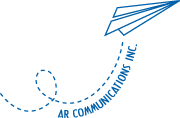When you write for a living, you can’t measure a day’s success as you would another, less-creative profession. Sometimes, writing 100 words of a 1,500-word piece of collateral that’s due tomorrow is success. And, according to science, so is the time spent mindlessly surfing LinkedIn.
One of those LinkedIn articles says procrastination may actually be conducive to creativity, because “when you put off a task, you buy yourself time to engage in divergent thinking rather than foreclosing on one particular idea. As a result, you consider a wider range of original concepts and ultimately choose a more novel direction.”
I love this. Because while B2B content such as web copy, eblasts, whitepapers and blog posts may not seem like the most creative endeavours, they absolutely are. Every piece of content marketing should not only clearly convey a business’s key messages, but resonate with the target audience as well. Often, this involves combing through a ton of information, determining which messages are essential to the project at hand, and finding unique and interesting ways to present them.
Sometimes, if time is on your side and you’re able to procrastinate, you’ll discover that the “real message” is actually buried in a SME’s off-hand comment. Or that an infographic would be able to tell a specific story way better than a written blog post. Or that a certain piece doesn’t convey quite the right tone for the desired audience.
The thing is, to truly allow the ideas to flow, you need time. And when deadlines are coming in, one on top of another, it’s difficult to take a moment to breathe—let alone sit and ponder an idea. That said, perhaps by recognizing the need for “intentional procrastination”, we’ll feel a little less guilty about taking that time to pause the next time it’s needed.


